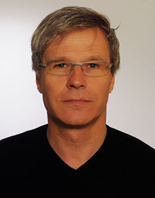Use of cookies
Cookies help us to provide our services. By using our website you agree that we can use cookies. Read more about our Privacy Policy and visit the following link: Privacy Policy
Consortium lead and Work package 1
MSM review
The Robert Koch Institute (RKI) is the central federal institution in Germany responsible for disease control and prevention and the central federal reference institution for both applied and response-orientated research as well as for the Public Health Sector.
The tasks of the Robert Koch Institute comprise:
Apart from the enforcement of special laws, the tasks at the RKI include the legal obligation to compile scientific findings as a basis for political decisions concerning health issues. The RKI therefore communicates and cooperates with partners in the scientific sector, the Public Health Service and the Health Care Sector. The institute has major responsibilities in the field of scientific investigation, epidemiologic and medical analysis and evaluation of dangerous diseases and those with a high prevalence or of increased public or health-related political significance.
With the passing of the Law for the Prevention of Infection (Infektionsschutzgesetz, IfSG), the RKI was given the responsibilities of a federal epidemiological centre for infectious diseases, combined with the construction of an expert-based registration system plus other novel and enhanced tools for data generation, prevention, surveillance and research.
ESTICOM coordinator, senior scientist:

Ulrich Marcus studied Medicine in Berlin from 1977 until 1984. 1984 he started his professional career at the Robert Koch-Institute (RKI) in Berlin in a working group dealing with the unfolding HIV/AIDS epidemic. He continued working in the HIV/AIDS field in different positions at the RKI or related institutions. Since 2001 he has been employed as a senior epidemiologist in the HIV/STI/Hepatitis unit of the newly created Department for Epidemiology of Infectious Diseases at the Robert Koch-Institute, which is the federal institute responsible for disease surveillance in Germany. He represents the RKI in the German committee on HIV guidelines, served as lead in the HIV-PEP guideline committee, represented Germany in the HIV/AIDS expert group of the Baltic Sea Task Force, and the HIV and associated infections expert group of the Northern Dimension Partnership.
He was principal investigator of several large national and international European studies dealing with sexually transmitted infections, HIV, and sexual behaviour among men having sex with men:
Links:
www.emis-project.eu
www.sialon.eu
Susi (Susanne Barbara) Schink is an infectious disease epidemiologist by training. She has worked on national and international projects on HIV and STI affecting key populations, contact tracing, as well as on outbreaks and surveillance of various bacterial and viral pathogens at the national public health institute in Germany. With WHO, Susi joined the Ebola effort in francophone West Africa. She has also researched and taught at Emory University, Atlanta, GA as well as at Charité Universitätsmedizin Berlin. In addition to her postgraduate training in applied epidemiology, Susi also holds master’s degrees in psych (UCL) and critical theory (Sussex).